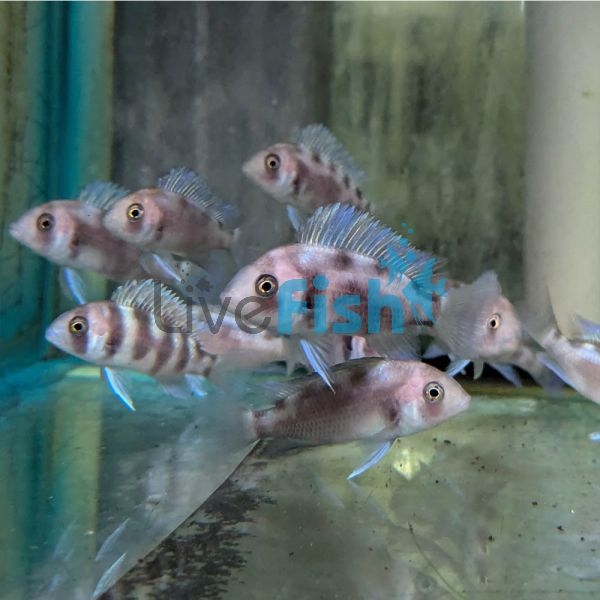Black Widow Frontosa Cyphotilapia 5cm
New Arrival!
Frontosa is an incredibly popular African cichlid coming from Lake Tanganyika. These fish are often seen as a pinnacle species for African cichlid keepers due to their large growing size, simple yet contrasting colours, and the beauty they have in a species-only aquarium. Lake Tanganyika seems to be the hotspot for interesting along with unique African cichlids and the frontosa are no exception to this.
Black Widow Frontosa Cyphotilapia
Frontosa is an incredibly popular African cichlid coming from Lake Tanganyika. These fish are often seen as a pinnacle species for African cichlid keepers due to their large growing size, simple yet contrasting colours, and the beauty they have in a species-only aquarium. Lake Tanganyika seems to be the hotspot for interesting along with unique African cichlids and the frontosa are no exception to this.
There are actually multiple different species of frontosa commonly seen in the aquarium hobby however one of the rarer strains is the Black Widow frontosa. What's incredibly interesting about these fish is that they are actually the same species as the incredibly common Burundi or 6 bar frontosa however the black widows are a naturally occurring colour morph recognised by their very obvious patterning. These fish have a white body colour and connected blotchy black patterns instead of stripes. The only stripe observed is across the face which is all contrasted by the powder blue fins.
Frontosa also have a very different facial structure compared to other cichlids where dominant males develop a large nuchal hump which gives them an unmistakable look. Being a tropical fish, it is best to keep the frontosa in temperatures between 24-28 degrees and they do require a fairly large aquarium due to their larger growing size. Breeding these fish is possible as males and females can be distinguished when matured, frontosa are mouth brooders meaning that they will incubate the eggs in their mouth and release them when the fry is developed.
Tank Recommendations for your Black Widow Frontosa Cyphotilapia
Black widow frontosa get to a maximum size of around 30 cm with females staying slightly smaller. They are considered to be semi-aggressive and can be kept with other tank mates however it is most common to see frontosa in a minimalistic species-only aquarium which truly showcases their beauty. Along with their size, black widow frontosa can be territorial as well but should be kept in a group of 5 or more individuals which means they will need a tank that is at least 800 litres.
In terms of the aquascape, it is common practice to have a sandy substrate and minimalistic hardscape materials. The ideal materials to use would be crushed aragonite sand, seriyu stone, or Texas holy rock as these elevate the PH which is best for the frontosa. These fish will make short work of plants so they should also be avoided.
Suitable Tank Buddies
Because of their semi-aggressive and territorial behaviour, it is recommended to keep them in a species-only aquarium. They can however be kept with african cichlids of similar behaviour.
Usually Compatible
Malawi Peacocks and larger growing Tanganyikan cichlids.
Sometime Compatible
Medium-sized African cichlids such as lemon cichlids or julidochromis.
Rarely Compatible
Nano african cichlids such as shell dwellers and non-african species.
Feeding your Cyphotilapia Frontosa Black Widow
The frontosa is a fairly easy fish to feed as they readily take to aquarium foods. Because of their primarily herbivore-based diet in the wild, it is best to use a food that is high in spirulina content and green matter. This can be supplemented with blanched veggies and feeding can be done at any time of the day.
| Scientific Name | Cyphotilapia frontosa |
|---|---|
| Care Level | Moderate |
| Common Names | Cyphotilapia Frontosa 'Black Widow' |
| Diet | Herbivore |
| Fish Family | Cichlidae |
| Lifespan (years) | 25 |
| Max. Length (cm) | 20 |
| Min. Tank Volume (l) | 800 |
| Origin | Africa |
| Sociability | Peaceful |
| Venomous | No |
| Water Conditions | 24 - 26° C, pH 7 - 8 |




